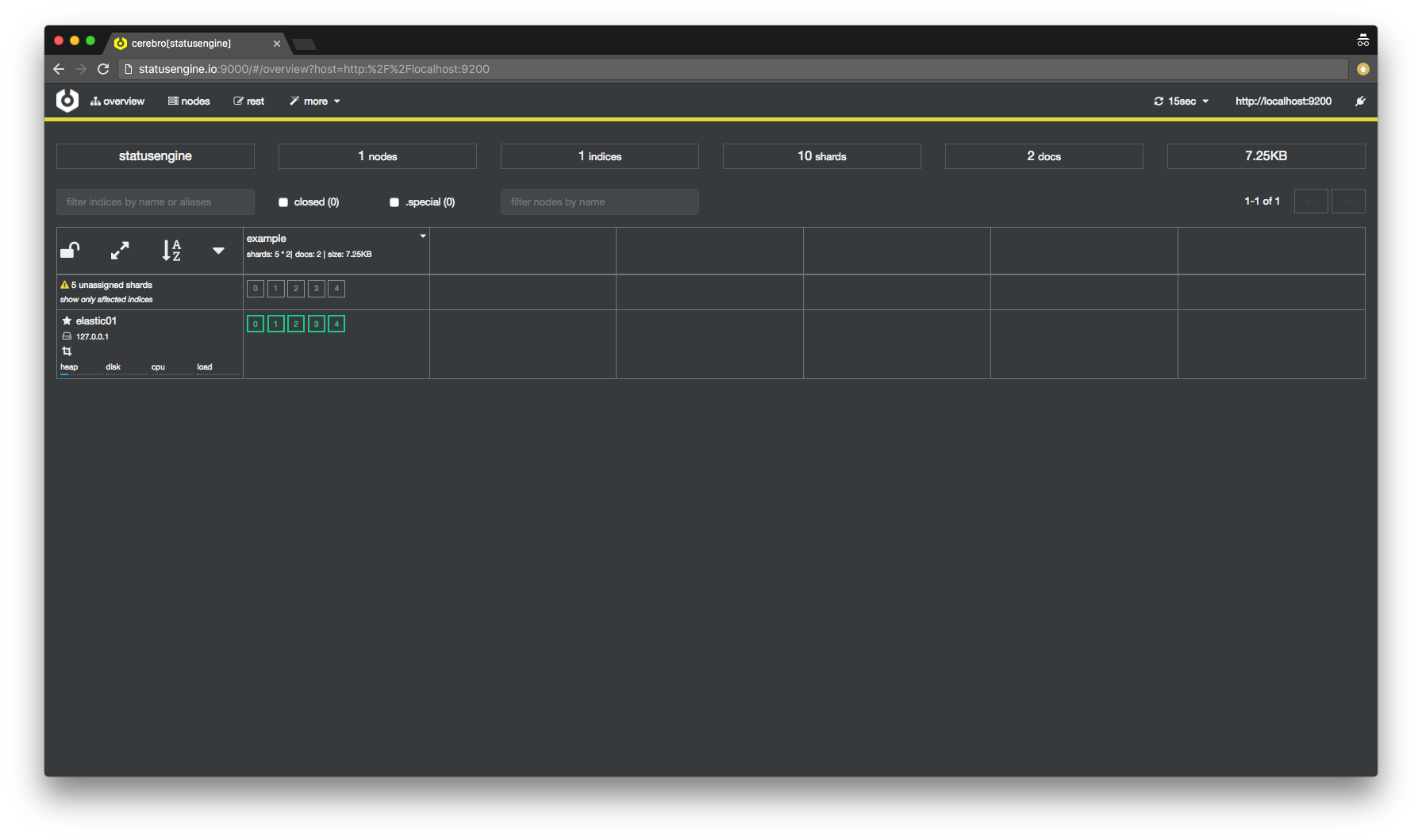Install Elasticsearch 5.x on Ubuntu 16.04
Related topics:
- Install Elasticsearch 5.x on Ubuntu 16.04
- Install Elasticsearch 6.x on Ubuntu 18.04
- Install Elasticsearch 7.x on Ubuntu 20.04
In this tutorial I'm going to show you, how to install Elasticsearch 5.x on your Ubuntu Xenial (16.04) Linux box.
Before you start! Please take a look at the official documentation! https://www.elastic.co/guide/en/elasticsearch/reference/current/deb.html
All commands needs to run as user root or via sudo.
Requirements
Elasticsearch 5.x requires Java 8 or later. If you don't have Java installed yet - follow this guide.
The Elasticsearch APT repository is using HTTPS. For this reason, you need to install the following package.
apt-get install apt-transport-https
Install Elasticsearch
Add official the APT repository to your sources.list
echo "deb https://artifacts.elastic.co/packages/5.x/apt stable main" > /etc/apt/sources.list.d/elastic-5.x.list
wget -qO - https://artifacts.elastic.co/GPG-KEY-elasticsearch | apt-key add -
apt-get update
Install
apt-get install elasticsearch
Configure Elasticsearch
In this case, we are going to setup a standalone Elasticsearch system.
Open the file /etc/elasticsearch/elasticsearch.yml to adjust the following values
#Set the name of your Elasticsearch Cluster
cluster.name: statusengine
# Set the name of the current node
node.name: elastic01
#Path where Elasticsearch should store data
path.data: /var/lib/elasticsearch
#Path where Elasticsearch should store log files
path.logs: /var/log/elasticsearch
#You need at least one master node inside
#of your Elasticsearch Cluster
node.master: true
#You need at least one node inside
#of your Elasticsearch Cluster, that holds your data
node.data: true
If one of the listed options is missing in your default config, just add it .
Start Elasticsearch
systemctl enable elasticsearch.service
systemctl start elasticsearch.service
By default Elasticsearch will listen on localhost:9200 and localhost:9300.
You can change this or run an HTTP reverse proxy (for example nginx) in front of Elasticsearch.
root@ubuntu:~# netstat -tulpen | grep java
tcp6 0 0 127.0.0.1:9200 :::* LISTEN 111 32142 9731/java
tcp6 0 0 ::1:9200 :::* LISTEN 111 32141 9731/java
tcp6 0 0 127.0.0.1:9300 :::* LISTEN 111 32100 9731/java
tcp6 0 0 ::1:9300 :::* LISTEN 111 32091 9731/java
Test Elasticsearch
To check if your installation of Elasticsearch is running, you can run a simple status query against it.
curl -X GET "http://localhost:9200"
You should get an result like this:
{
"name" : "elastic01",
"cluster_name" : "statusengine",
"cluster_uuid" : "Iz8f3T6pQQ62k_asARql-w",
"version" : {
"number" : "5.6.3",
"build_hash" : "1a2f265",
"build_date" : "2017-10-06T20:33:39.012Z",
"build_snapshot" : false,
"lucene_version" : "6.6.1"
},
"tagline" : "You Know, for Search"
}
Setup Cerebro
Cerebro (previously known as kopf), is an web based admin tool for Elasticsearch. Especially if you are new to Elasticsearch it will help you a lot!
Before you start! Please check for newer version at the official GitHub repository!
cd /tmp
wget https://github.com/lmenezes/cerebro/releases/download/v0.7.1/cerebro-0.7.1.tgz
tar xfv cerebro-0.7.1.tgz
cd cerebro-0.7.1/
mkdir -p /usr/local/share/cerebro
cp -r * /usr/local/share/cerebro/
Now you can run Cerebro using this command:
/usr/local/share/cerebro/bin/cerebro
You should now be able to access Cerebro via your Webbrowser: http://<ip-address>:9000
In addition, you can add a systemd service, to run Cerebro as service in the background.
Create the file /lib/systemd/system/cerebro.service:
[Unit]
Description=Cerebro
After=syslog.target network.target
[Service]
User=root
Type=simple
Restart=on-failure
ExecStart=/usr/local/share/cerebro/bin/cerebro
[Install]
WantedBy=multi-user.target
systemctl daemon-reload
systemctl start cerebro.service
Cerebro example
